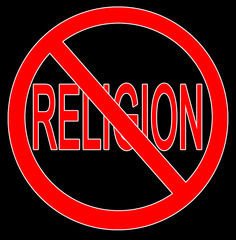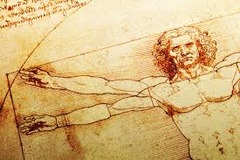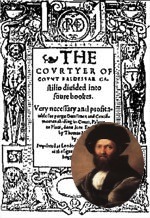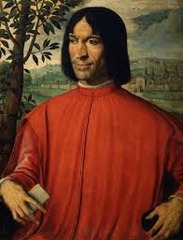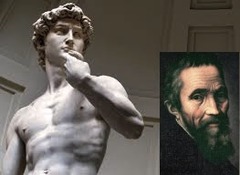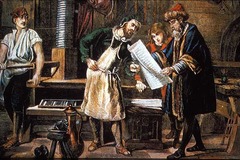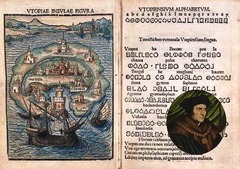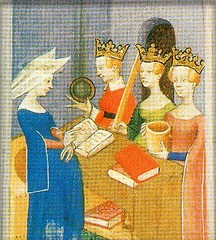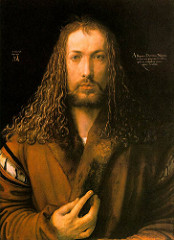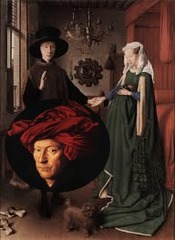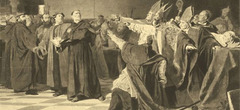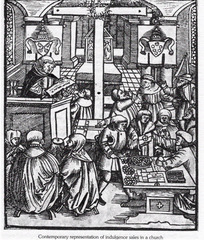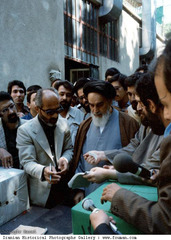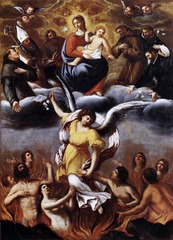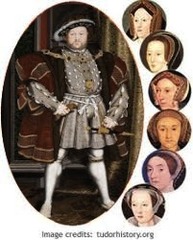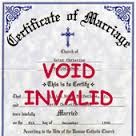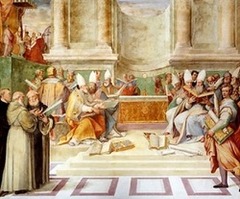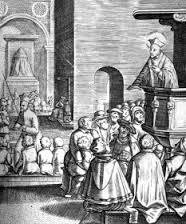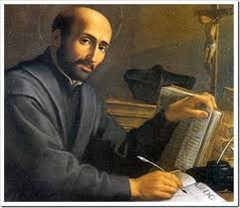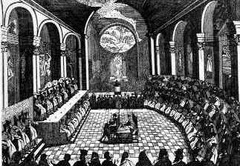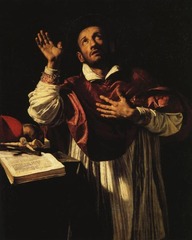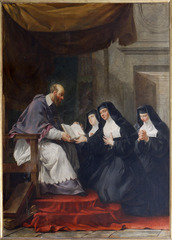Renaissance
an era of renewed interest and remarkable progress in art, literature, science, and learning in Europe, beginning in Italy in the 1300's
secular
having a worldly (ordinary life) rather than spiritual (church life) focus
humanism
a movement that emphasized the possibilities of individual accomplishment and the almost limitless potential of the human mind
Baldassare Castiglione
Italian aristocrat who wrote "The Courtier", which became a handbook for how to succeed in society
Niccolo Machiavelli
Florentine political philosopher and statesman who worte "The Prince", which advised rulers to separate morals from politics
Lorenzo de Medici
ruler of Florence who was an important patron (financial supporter) of arts and learning
Leonardo da Vinci
"Renaissance man" who became famous as a painter, architect, inventor, and engineer; painter of the "Mona Lisa" and "The Last Supper"
Raphael
famous painter of both classical and religious subjects, and an accomplished architect
Michelangelo Buonarroti
sculptor and painter, famous for works such as the Sistine Chapel, the statue "David", and the design of St. Peter's Cathedral
Johannes Gutenberg
German man credited with the invention of movable type in the mid-1400's
Desiderius Erasmus
priest and Christian humanist philosopher who wrote about the need for a simple Christian life without the rituals and politics of the church
Sir Thomas More
English humanist who wrote "Utopia", a book that told about a perfect but nonexistent society based on reason
William Shakespeare
English playwright and poet; author of famous works such as "Hamlet", "Romeo and Juliet", "Macbeth", and "A Midsummer Night's Dream"
Christine de Pisan
Italian-born woman who wrote the first important work about the role women played in society
Albrecht Durer
German artist who visited Italy in the late 1400's, learning techniques of realism and perspective, influencing later German Renaissance artists
Jan van Eyck
Flemish painter who focused on landscapes and everyday life
Protestant Reformation
a movement beginning in the 1500's to reform the Roman Catholic Church, which led to a split of the church between Catholics and Protestants
indulgences
exchange of money for forgiveness of sin
Martin Luther
critic of the Roman Catholic Church whose ideas sparked discussion about its practice and beliefs, and lead to the founding of Lutheranism
theocracy
a government in which church and state are joined and whose officials are considered to be divinely inspired
John Calvin
important Protestant reformer whose writings became the basis of Calvinism
predestination
religious belief that states God has already decided who will go to heaven, and so nothing people do will change their fate
Henry VIII
English king who broke with the Catholic Church in order to divorce his first wife
annulled
declared invalid based on church laws
Elizabeth I
queen who firmly established England's religion as Protestant, daughter of Henry VIII
Counter-Reformation
reform movement within the Catholic Church
Jesuits
religious order which focused on the reform of the church, spirituality, service to others, education, and the further spread of Catholicism (also called the Society of Jesus)
Ignatius of Loyola
founder of the Jesuits whose search for spiritual peace led him to give up his belongings and practice self-denial
Council of Trent
meetings called by Pope Paul III to make a series of reforms to the church and clarify important teachings, took place between 1545 and 1563
Charles Borromeo
archbishop of Milan who implemented the reforms decreed by the Council of Trent, such as building schools for priests
Francis of Sales
French missionary who returned the French district of Savoy to the Catholic church and founded a religious teaching order for women
Teresa of Avila
Spanish nun who reformed the Carmelite order

